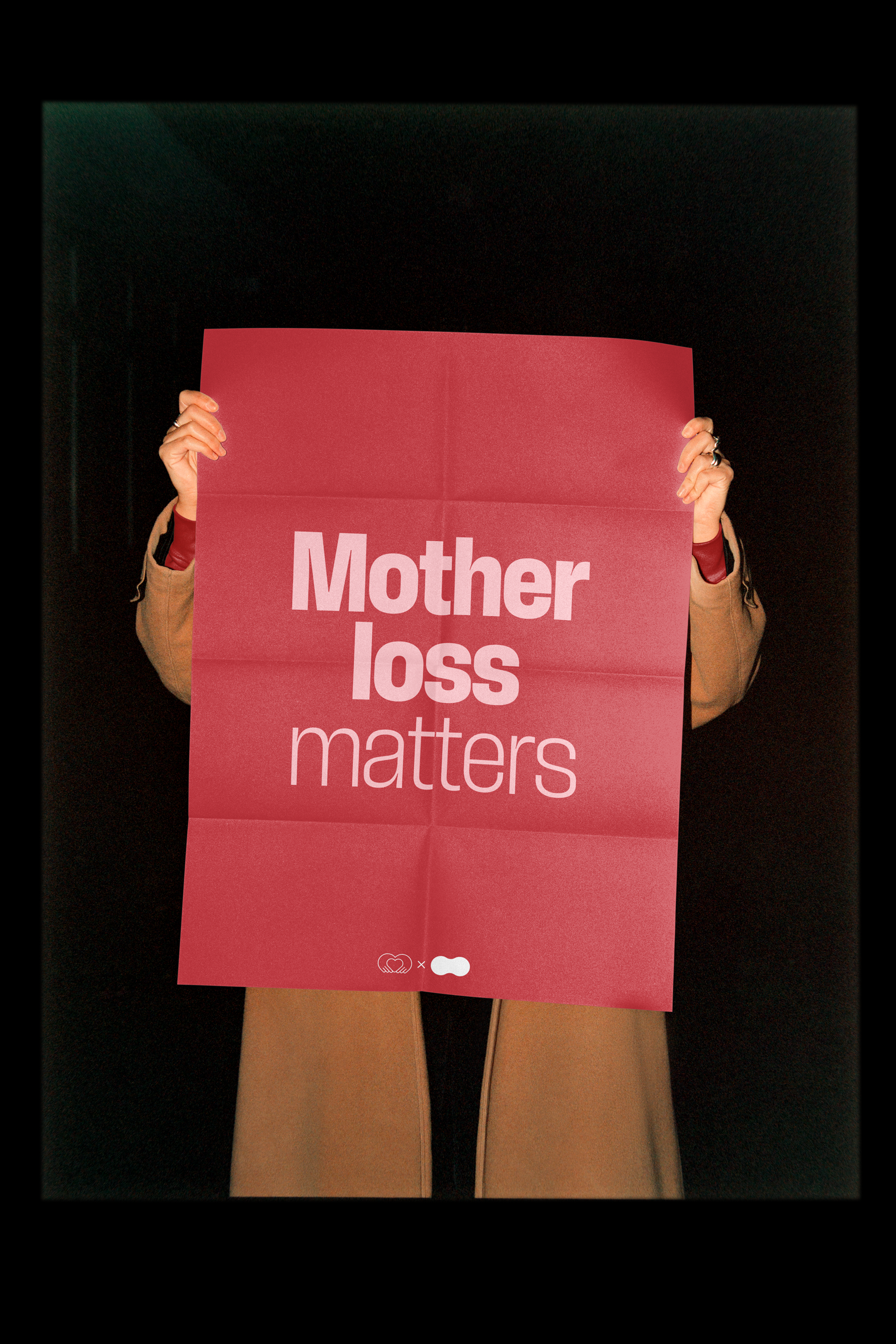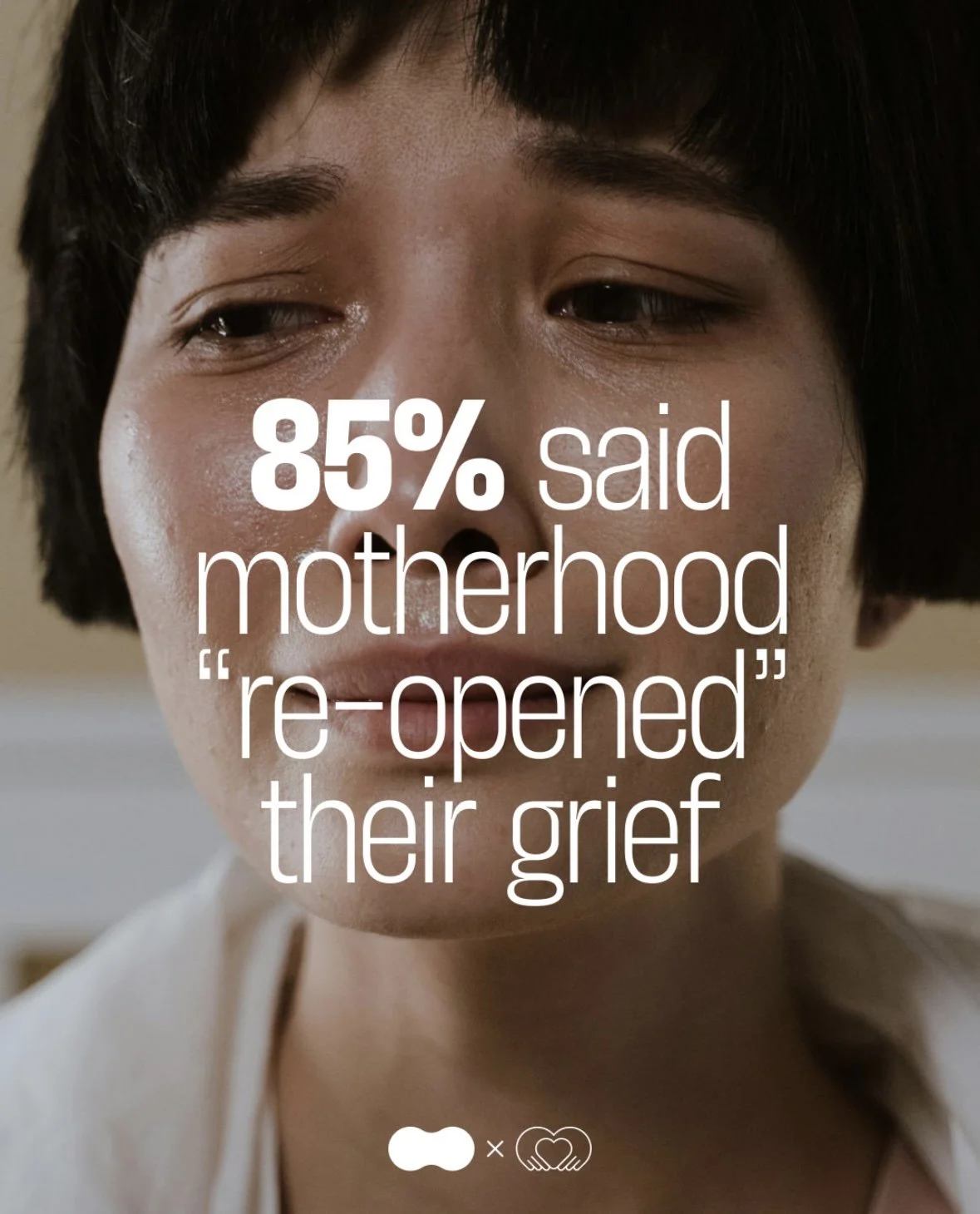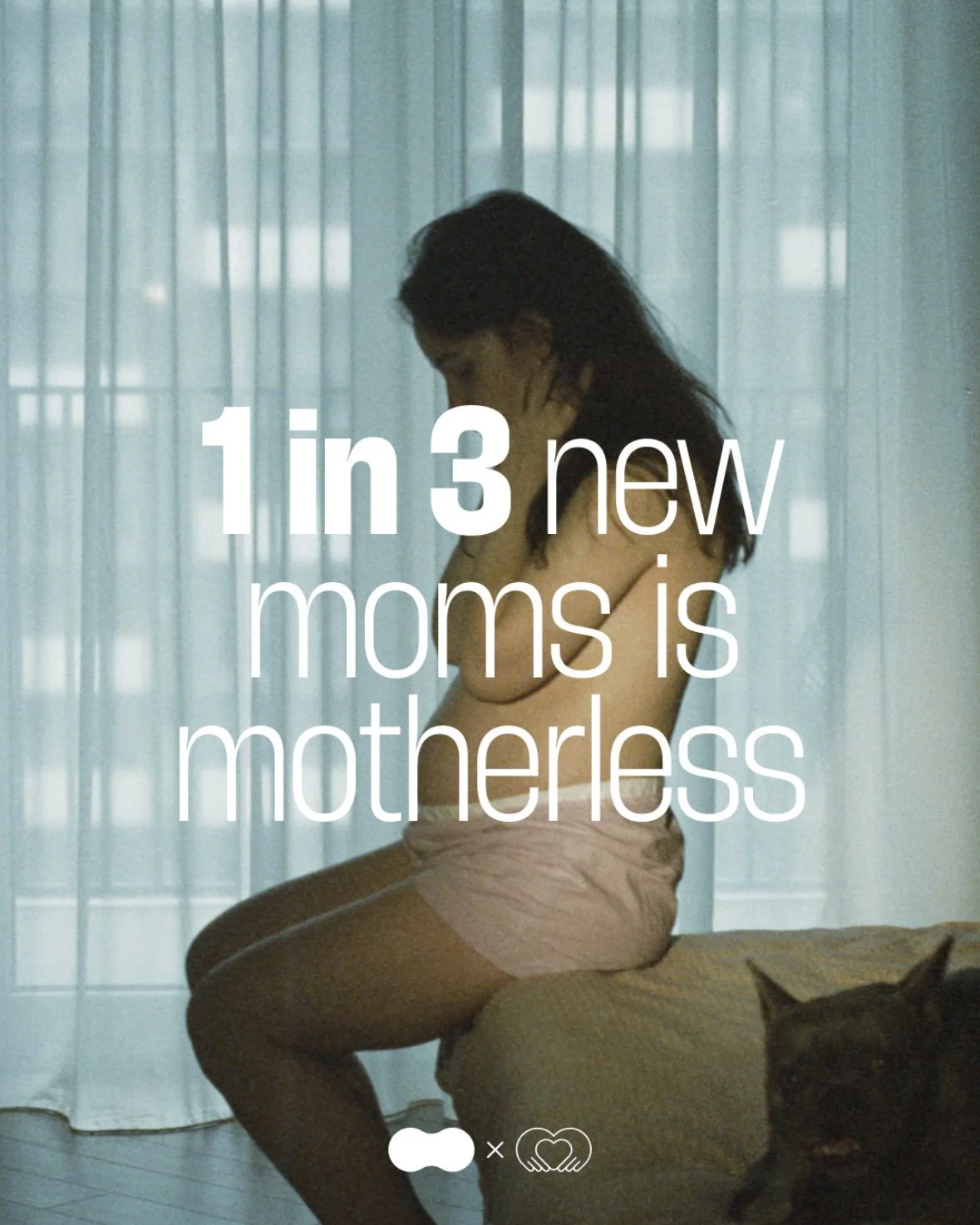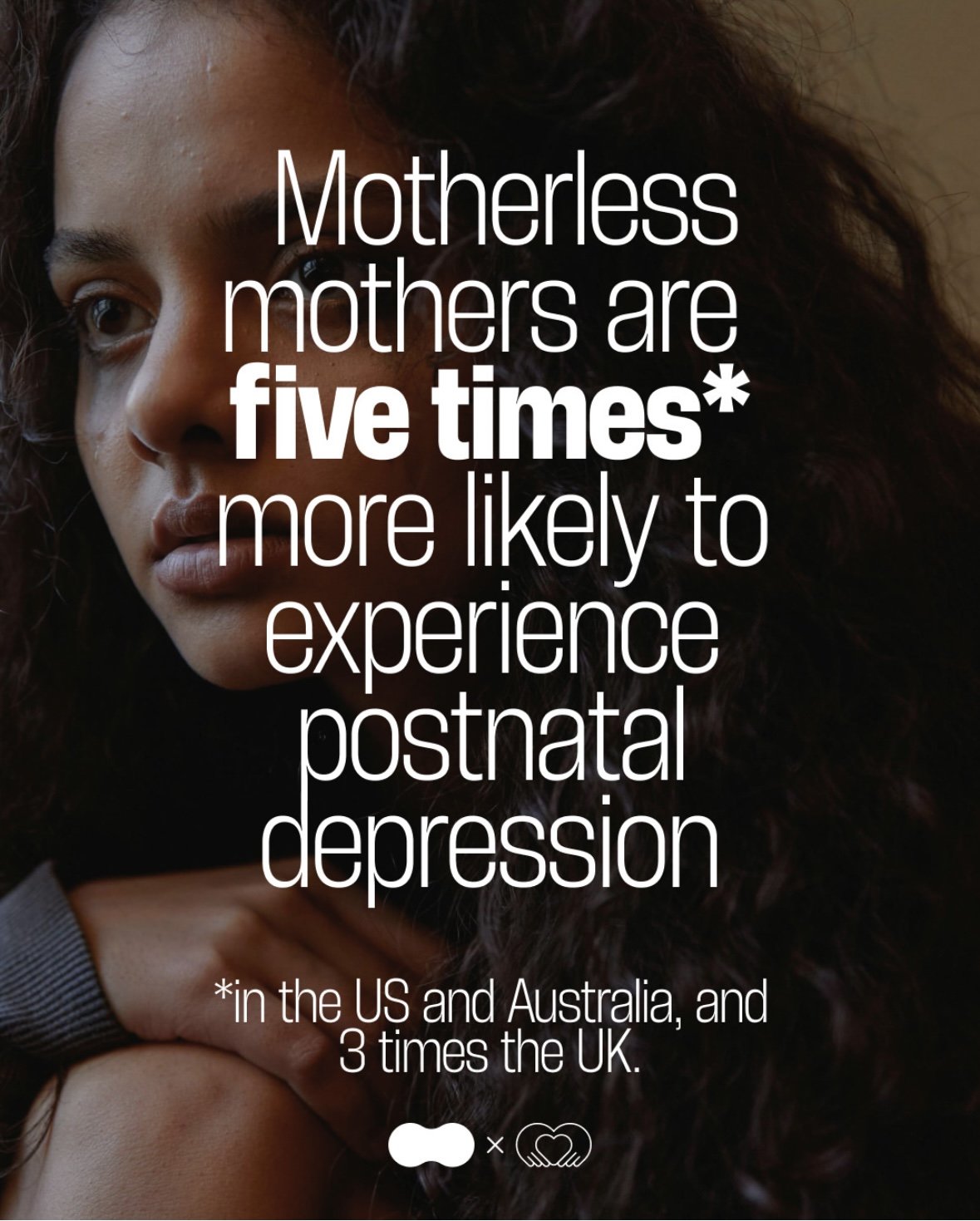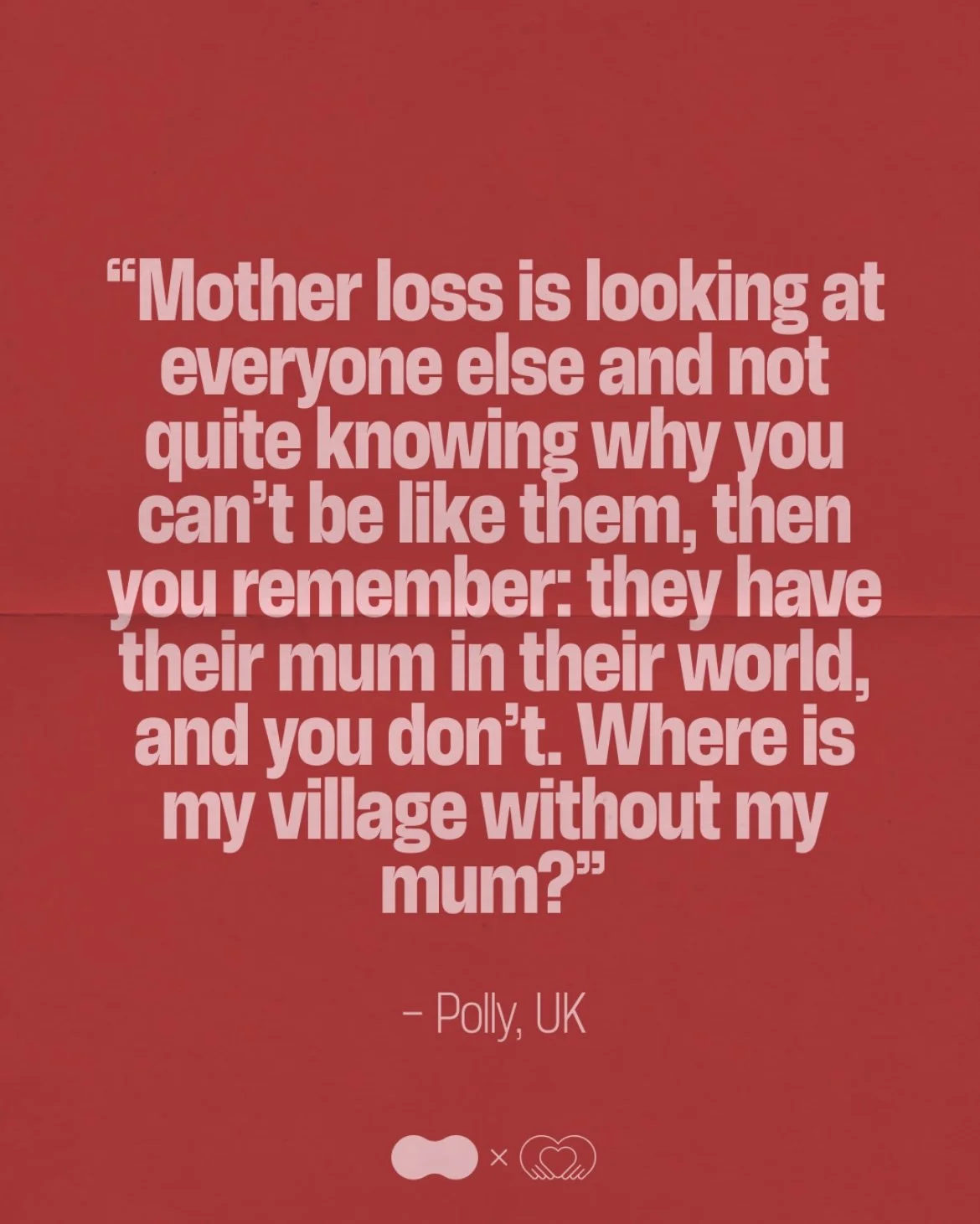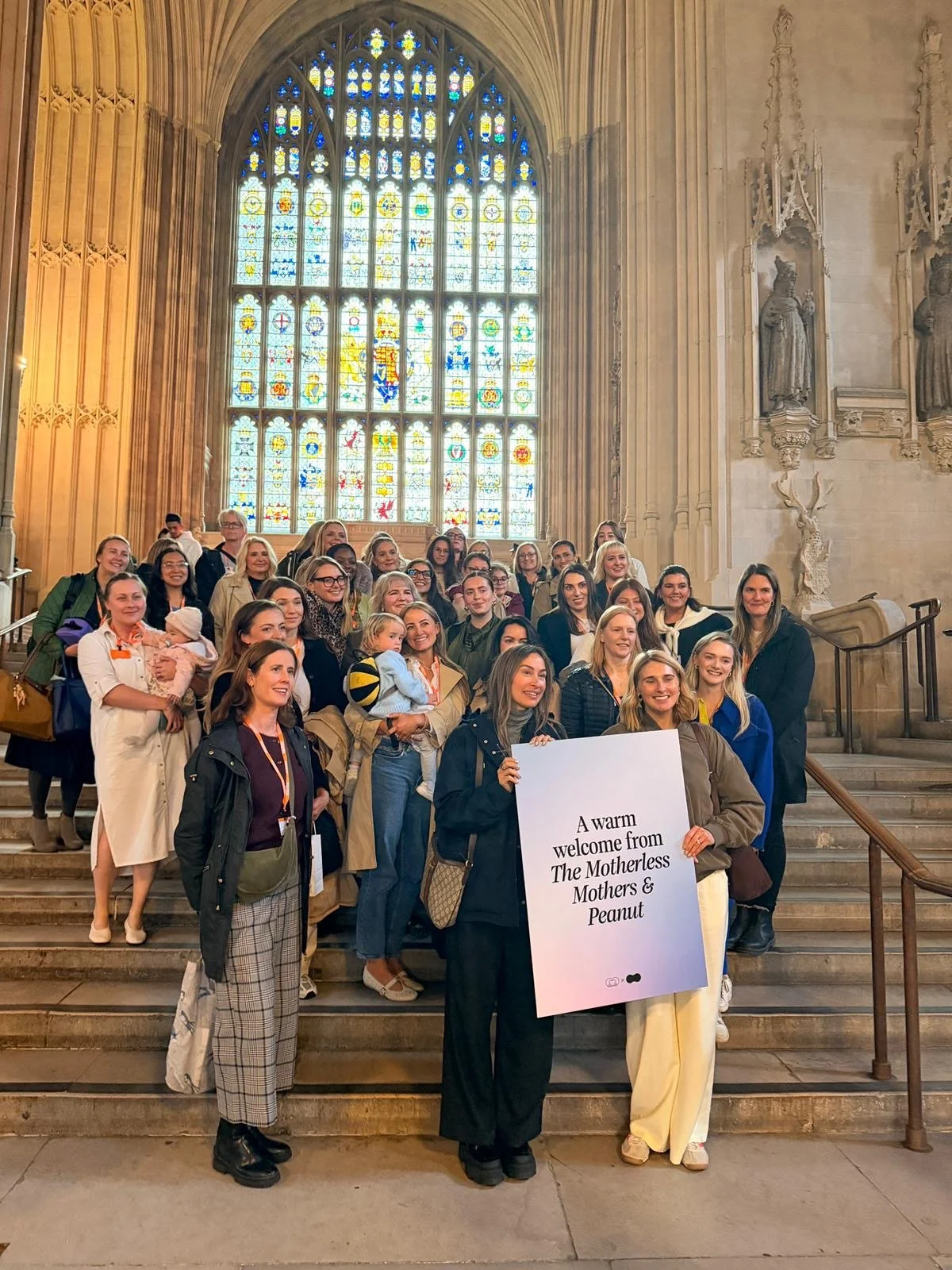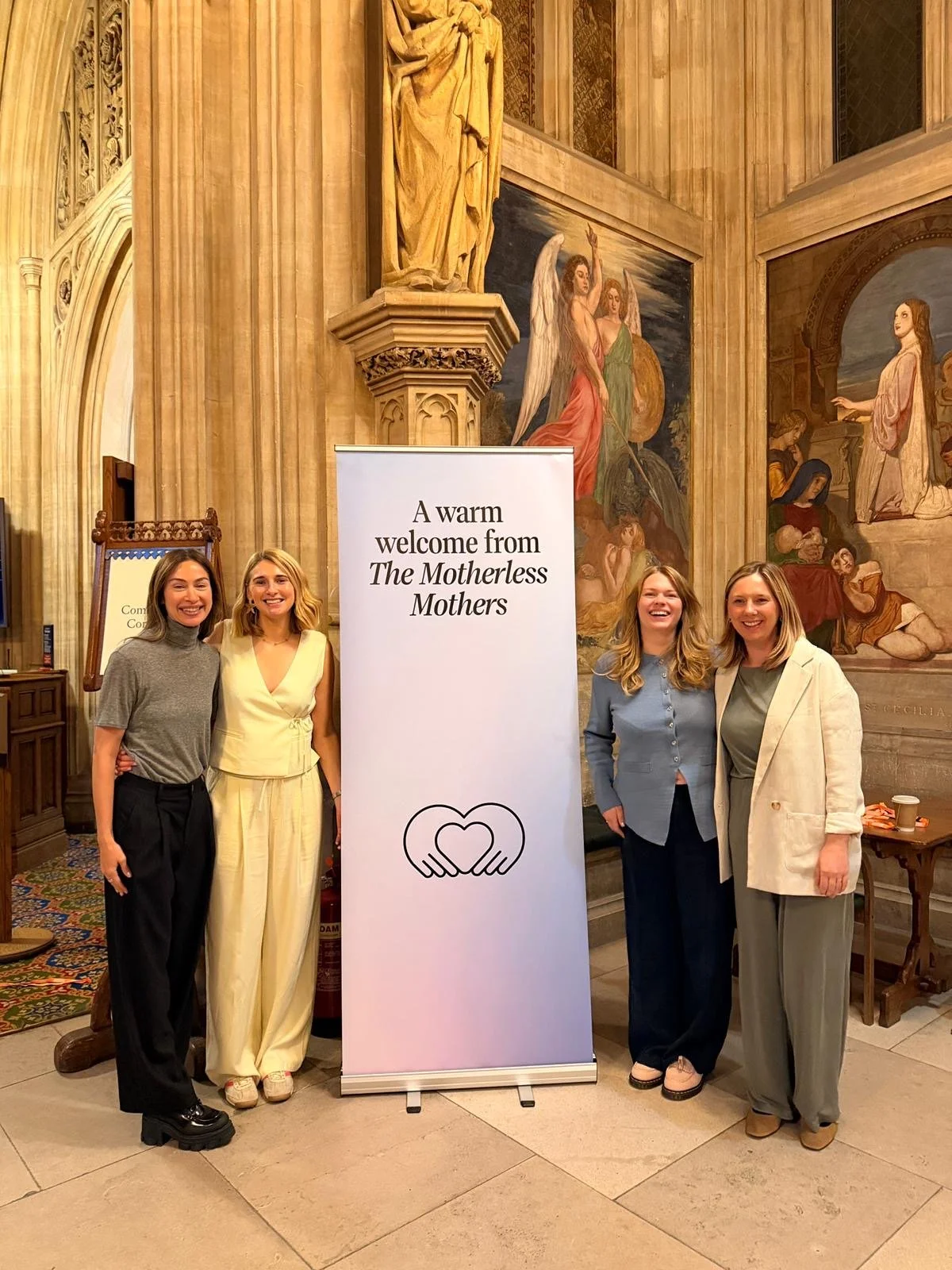When I became a mother, I felt something I hadn’t expected: I was learning to mother without being mothered, carrying a grief I could barely name. Every late-night feed, every first smile, every first word, and every moment of doubt reminded me of what I had lost — and of the support I never had. Motherhood and grief are both identity-altering experiences. When they intersect, whether weeks or decades apart, the impact can be profound.
That experience is what led me, in 2024, together with Louise Kirby-Jones, to found The Motherless Mothers charity and community. Our goal was simple: to ensure women who become mothers without mothers of their own feel seen, supported, validated, and connected. But support was only the beginning. The deeper need we uncovered was systemic — how maternal health services, clinicians, and policymakers understand — and often fail to understand — women navigating early motherhood without maternal support. That need led me to develop Grief-Aware Care™, and more specifically, Grief-Aware Maternal Care.
What the Research Shows
In partnership with Peanut, we conducted the first large-scale study exploring the impact of mother loss on maternal mental health: The Hidden Crisis of Motherless Mothers (2025). The findings were stark:
1 in 3 new mothers are “motherless”.
These mothers are 5.4× more likely to experience postnatal depression in the U.S. (3.4× in the UK).
81% report anxiety or depression.
85% say motherhood reopened their grief.
95% reported feeling isolated or unsupported in the past 12 months.
74% were never asked about maternal support.
What’s particularly striking – and deeply concerning – is how many women tell us they were diagnosed with postnatal depression when, in reality, they were grieving. Their distress wasn’t solely hormonal; situational and relational factors are frequently central. This distinction matters.
We urgently need more research to understand the overlap and differentiation between postnatal depression and grief in motherless mothers. How many women are being treated for a hormonal imbalance when what they truly need is validation, compassion, and grief-aware care? Until we begin asking these questions and recognise grief as a legitimate perinatal mental health experience, we will continue to treat symptoms rather than understanding the story beneath them.
These figures reveal a critical blind spot in maternal healthcare—one where grief is invisible, relational loss is misread, and mothers remain unsupported.
Why It Matters
Becoming a mother is a profound psychological transition, what we call matrescence, akin to adolescence in its intensity and identity transformation. Like infants or adolescents, new mothers also need a safe base: a steady, trusted figure who can hold their uncertainty and help them integrate the emotional and physical upheaval of this change. For many women, that figure is their own mother — a source of grounding and reassurance during early motherhood. Maternal support is one of the most powerful, yet least recognised, protective factors against postpartum depression. When a maternal figure is present, she provides emotional scaffolding and is someone who can affirm her instincts and remind her that she’s doing enough. When she is gone, the transition into motherhood can feel unmoored and far more destabilising.
Motherless mothers are learning to mother without being mothered and often doing so while actively grieving. In clinical work and through our research, I’ve seen that when maternal support is absent, mothers are more vulnerable to emotional overwhelm, heightened anxiety, and a pervasive sense of disconnection from both themselves and their babies.
During my MA in Child Psychotherapy, I carried out weekly infant observations, watching and witnessing a mother and her baby form their bond from birth to two years of age. What stood out from that experience was how essential attunement is – a mother’s capacity to read and respond to her baby’s cues and needs – and how fragile that capacity can feel when grief is present.
A grieving mother may suddenly doubt their instincts, become hypervigilant, or live with a persistent fear that something will go wrong. Those reactions are not pathological; they are a profoundly human response, informed by attachment processes and the loss – or the longing for what was never safely available – of a safe base.
Entering motherhood while grieving is like walking through two life-altering thresholds at once. Grief can appear suddenly, triggered by ordinary moments — a bath, a laugh, a feeding. It intertwines with the psychological and emotional changes of matrescence, reshaping how women experience themselves, their baby, and their capacity to mother.
Many describe it as feeling at sea, navigating new waters without a compass, sometimes overcompensating to fill the emotional gap left behind. Yet grief can also reveal unexpected depth and heightened attunement. Motherless mothers often develop a finely tuned awareness of their child’s emotional states, able to hold joy and sorrow simultaneously — a capacity they often describe as “bittersweet”.
What Is Grief-Aware Care™?
Grief-Aware Care recognises that becoming a mother can reopen losses. It means seeing the invisible grief a woman carries into pregnancy and early motherhood and making space for it. It’s not about fixing grief. It’s about supporting women as they learn to walk with it during one of, if not the most, vulnerable times of their lives.
We see two key gaps:
Awareness — recognising that grief, loss, and estrangement can resurface strongly in pregnancy and postpartum and can increase risk for perinatal mental health conditions.
Pathways — providing grief-aware support once women are identified as vulnerable.
Right now, many motherless mothers are left to cope alone. Grief-Aware Care™ asks a simple but powerful question:
“Do you have maternal support?”
That question brings context, relational history, and risk into view. It reframes assessment from a purely medical lens to one that recognises the emotional scaffolding underpinning early motherhood. Grief can appear in many forms: rage, numbness, anxiety, or disconnection. Not every motherless woman needs specialist care, but many need more than they currently get: a conversation, a question, a moment of recognition.
Grief-Aware Care offers:
A space to speak grief without judgment
Support without needing a diagnosis
Recognition without minimisation
“When grief is recognised, something softens. A mother no longer feels she’s failing; she understands she’s grieving.”
From Research to Reform
On October 23rd, 2025, we marked the first ever Mother Loss Awareness Day in the UK. Standing inside the Houses of Parliament as we launched our report with Peanut, I felt something shift. What began as a personal story — one shared by millions — was finally being recognised as a public health issue.
It was more than symbolic. It was a moment of acknowledgement — that maternal loss isn’t peripheral to maternal health; it’s central to it.
That’s what Grief-Aware Care™ is about. It’s not a new therapy or intervention. It’s a framework — a way of seeing, listening, and responding. It gives professionals the language and understanding to meet women where they are, with curiosity, compassion, and awareness.
Recognition is the first step. Too many grieving mothers are met with silence, or worse, avoidance. Grief doesn’t need fixing; it needs holding — a safe space to be witnessed, whether through therapy, peer support, or even one kind, attentive moment with a healthcare professional.
Our research found that 74% of motherless mothers were never once asked about maternal support. That silence compounds risk and isolation. 82% told us clinicians should routinely ask. 76% said they want Grief-Aware Care™ training for all healthcare professionals.
These numbers tell their own story — one that’s urgent, human, and entirely possible to change. Grief-Aware Care™ does that. By recognising maternal loss as a determinant of wellbeing, it has the power to transform outcomes through small, simple shifts in how we see and respond to mothers without mothers.



